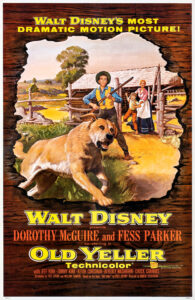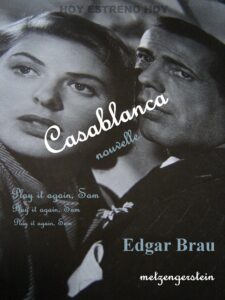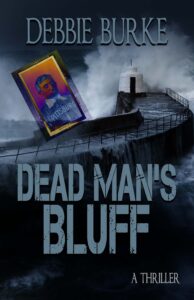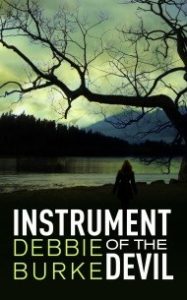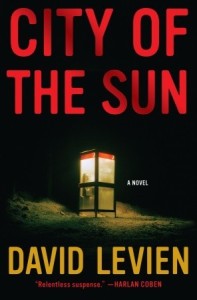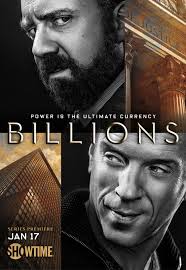
Photo by NeONBRAND on Unsplash
By Debbie Burke
Good morning and welcome to another Brave Author who’s submitted the first page of a mystery for discussion. Please enjoy the following then we’ll talk about it.
~~~
Little League; Huge Trouble
Genre: Mystery
The streets were empty, black puddles filling the trench where they dug up the gas line. It was the quiet time after school and before the commuters wind through the neighborhood.
If anyone was walking through the neighborhood, they would have seen him. He was running with hard plastic soles slapping the pavement.
On Milbert Street, according to the police report, he ran behind the shingled Victorian and through the garden that’s been featured in 40 magazines and down 220 yards of wooded trails to Salmon Street.
He ran left on Salmon, which descends through three quick curves and a patch of native rhododendrons, rising 30-feet high and exploding with faded pink blooms.
The next street, Greenway, is a short road with only seven houses and just beyond the fourth home, the midcentury showplace, he was shot. The bullet entered behind his left ear, severing the spinal cord and the slug tumbled underneath his skull, burrowing through the brain tissue like an angry metal worm.
He rolled down the embankment to the water that collects in the culvert after every strong rain.
When I learned he died and that he had been murdered, I hate admitting my initial reaction.
Damn, I thought, I just lost my leadoff hitter and best catcher.
My leadoff hitter and best catcher, who two weeks earlier had celebrated his 11th and final birthday.
~~~
I confess to mixed feelings about this page. There are some really nice, evocative visuals—black puddles in trenches, hard plastic soles slapping the pavement, etc. Rather than an info dump to describe the town, Brave Author blends action with description. Well done.
However, the POV is awkward and off-putting, switching from omniscient to first person. More on that in a moment.
Title: Little League; Huge Trouble sounds catchy, light, and humorous, as if this might be a cozy or a story for young readers. But the title is at odds with the vivid, gritty description of a bullet tumbling in a little boy’s brain like an angry worm, which, BTW, is an excellent simile.
I’m not a fan of semicolons in fiction and especially not in a title. It’s distracting and appears pretentious. Suggest you replace it with a comma or a dash:
Little League, Huge Trouble or Little League–Huge Trouble.
Point of View: The drone’s eye view of the streets, houses, and the boy fleeing from his killer is a cinematic effect that can be intriguing.
Omniscient POV is one way to show the overview of the setting. However, omniscient keeps the reader at a distance and delays introduction of the “I” character.
Tone: I felt off-balance and unsettled because the tone is uneven and inconsistent. It skips from an almost-flippant travelogue of an idyllic town featured in 40 magazines to the horrifying death scene of a little boy. Rather than becoming engrossed in the story, I spent too much time trying to figure out what direction the author was going.
This opener fouled out for the following reasons:
In parts, the tone tries to sound like a detailed official police report with precise factual details: “40 magazines”, “220 yards of wooded trails”, “three quick curves”, “rhododendrons, rising 30-feet high”, “seven houses”, “fourth home.”
But those cold facts feel in conflict with the wonderful, sensory descriptions that evoke emotion: “running with hard plastic soles slapping the pavement”, “exploding with faded pink blooms”, “burrowing…like an angry metal worm.”
Further, the observations about 40 magazines and midcentury showplace sound like authorial intrusions, further muddying the mood.
The contrast technique can work but must be carefully constructed so the reader doesn’t feel like a pinball bouncing from hard facts to the narrator’s flippant observations to strong emotions.
Likeability: When the POV shifts from omniscient to “I”, the character’s reaction to the murder strikes out big time.
When I learned he died and that he had been murdered, I hate admitting my initial reaction.
Damn, I thought, I just lost my leadoff hitter and best catcher.
My leadoff hitter and best catcher, who two weeks earlier had celebrated his 11th and final birthday.
Gotta tell ya—The character may hate himself or herself but not nearly as much as I hate the character for that selfish, self-absorbed attitude. A child has been murdered and s/he worries how that affects their team’s chances to win.
Even the hardest-boiled noir treats a child’s murder more gently.
S/he may be a snarky anti-hero whose character arc eventually leads to redemption. But, after reading this beginning, I wouldn’t continue. No matter how much I want to see a child’s killer brought to justice, it isn’t worth spending 300 pages with a character whose values are so crass and selfish.
The Brave Author may be trying for irony, a technique that can be used to great effect. But it must be done deftly when dealing with a sensitive, emotionally-charged subject.
Writing: Overall, the craft is skillful and well done with excellent descriptions. There are some repetitious words (neighborhood twice in the first two paragraphs) and phrases (leadoff hitter and best catcher). Several times, the tense shifts from past to present within the same sentence (It was the quiet time after school and before the commuters wind through the neighborhood). That may be deliberate but it’s jarring.
The unevenness of tone and an unlikable narrator hit a grounder instead of a fly ball out of the park.
But this page is easily salvageable and can be rewritten into a home run.
In the example below in red, I tinkered with reordering and refocusing the tone to put more emphasis on irony: the contrast of a brutal murder in an idyllic setting; and the contrast of the promising sports career of a young boy who’s suddenly and violently cut down.
According to the police report, the streets were empty, the quiet time after school but before commuters wound through the neighborhood on their way home. Black puddles filled a trench where the gas line had been dug up.
No witnesses had come forward yet. If anyone had been walking through the area at the time, they would have seen him, heard his hard, plastic soles slapping the pavement.
On Milbert Street, he ran behind the shingled Victorian and through the garden that’s been featured in 40 lifestyle magazines. He continued an eighth of a mile down a wooded trail to Salmon Street.
He ran left on Salmon, through three quick curves, passing 30-foot-tall native rhododendrons exploding with faded pink blooms.
The next street, Greenway, is a short road with only seven houses. Just beyond the fourth home, a mid-century showplace, he was shot.
The bullet entered behind his left ear and severed the spinal cord. The slug tumbled underneath his skull, burrowing through the brain tissue like an angry metal worm.
He rolled down the embankment into the water that collected in the culvert after every strong rain.
That evening, I learned the news that my leadoff hitter and best catcher had been murdered—a boy who two weeks earlier had celebrated his 11th and final birthday.
By starting the first paragraph with a reference to the police report, readers immediately know a crime has been committed. Then they follow the victim as he flees, setting up the contrast between the storybook setting and the horrific crime.
Lastly, the shock that the victim is a little boy is revealed but the “I” character’s reaction is not as off-putting. S/he may later admit disappointment that the team’s chances have been dashed IF that’s an important detail. But I suggest delaying that until the reader is much more invested in the story.
Brave Author, there is a lot of potential here for a compelling mystery but I think you need to decide on an overall tone that’s appropriate for the subgenre you choose.
Is this a small-town cozy? Unlikely because a child’s graphic murder takes it out of cozy realm.
A traditional whodunit mystery? More likely.
An amateur sleuth tale where a youth sports coach must solve a murder? This seems like the most appropriate slot.
What audience do you hope to appeal to?
Once you answer these questions, you can focus on a tone and title that are consistent and appropriate for that subgenre. Then the reader won’t feel off-balance. Instead s/he will be pulled into the story.
Thanks, Brave Author, for submitting this promising first page.
~~~
Over to you, TKZers. What are your impressions? Do you have suggestions for our Brave Author? Would you turn the page?
~~~
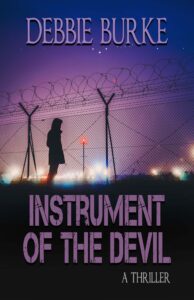
Try the first book in the Tawny Lindholm Thriller series for FREE. Available at Amazon and major online booksellers.


 This story was difficult to write, because my protagonist was so dislikeable. We learn straight out that Tiffany Yokum is a gold digger – and a calculating killer.
This story was difficult to write, because my protagonist was so dislikeable. We learn straight out that Tiffany Yokum is a gold digger – and a calculating killer. The award-winning Evan Hunter – a.k.a. Ed McBain – made that recommendation. It works if your villains aren’t too evil. McBain had a lot of sniffling and sneezing detectives in the 87th Precinct. But I could give Tiffany pneumonia – heck, Covid-19 – and she still wouldn’t be likeable.
The award-winning Evan Hunter – a.k.a. Ed McBain – made that recommendation. It works if your villains aren’t too evil. McBain had a lot of sniffling and sneezing detectives in the 87th Precinct. But I could give Tiffany pneumonia – heck, Covid-19 – and she still wouldn’t be likeable.
 Tiffany quickly becomes the fourth wife of rich old Cole Osborne and they live in luxury in Fort Lauderdale.
Tiffany quickly becomes the fourth wife of rich old Cole Osborne and they live in luxury in Fort Lauderdale. The Joni Mitchell song was Tiffany’s anthem, and she recognized herself in the lyrics of “Dog Eat Dog.” Especially the part about slaves. Some were well-treated . . .
The Joni Mitchell song was Tiffany’s anthem, and she recognized herself in the lyrics of “Dog Eat Dog.” Especially the part about slaves. Some were well-treated . . . Cindy knew she’s landed her pretty derriere in a tub of butter, but she knew her work has just started. Among other things, Cindy changed her name to a classier “Tish.”
Cindy knew she’s landed her pretty derriere in a tub of butter, but she knew her work has just started. Among other things, Cindy changed her name to a classier “Tish.”
 Tiffany says, “I thought I could sail smoothly into Cole’s sunset years and collect the cash when he went to his reward. But then that damn preacher showed up. The smarmy Reverend Joseph Starr, mega-millionaire pastor of Starr in the Heavens.”
Tiffany says, “I thought I could sail smoothly into Cole’s sunset years and collect the cash when he went to his reward. But then that damn preacher showed up. The smarmy Reverend Joseph Starr, mega-millionaire pastor of Starr in the Heavens.”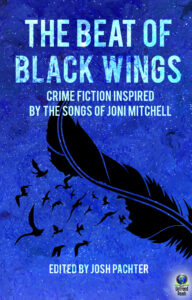 The Beat of Black Wings, edited by Josh Pachter, is an anthology of 28 crime writers who wrote short stories inspired by Joni Mitchell’s lyrics. The award-winning authors include Art Taylor and Tara Laskowski, Kathryn O’Sullivan, Stacy Woodson, and Donna Andrews. A third of the royalties will be donated to the Brain Aneurysm Foundation in Joni Mitchell’s name.
The Beat of Black Wings, edited by Josh Pachter, is an anthology of 28 crime writers who wrote short stories inspired by Joni Mitchell’s lyrics. The award-winning authors include Art Taylor and Tara Laskowski, Kathryn O’Sullivan, Stacy Woodson, and Donna Andrews. A third of the royalties will be donated to the Brain Aneurysm Foundation in Joni Mitchell’s name.


